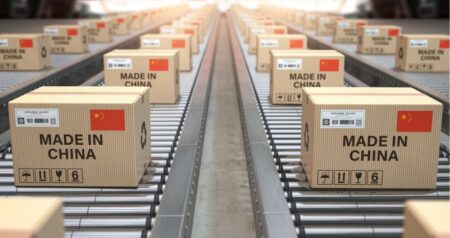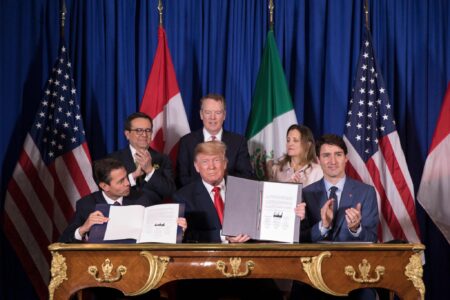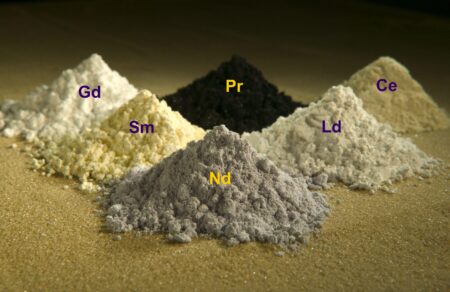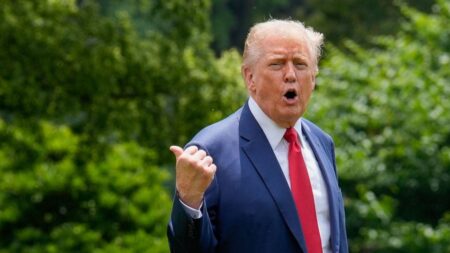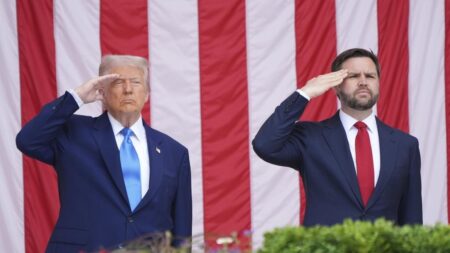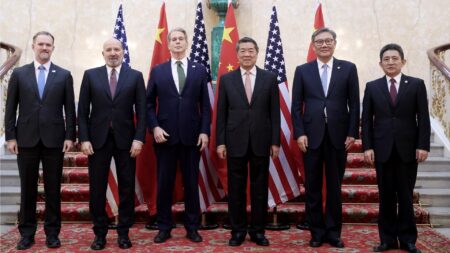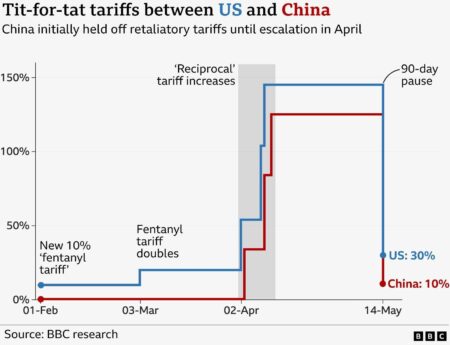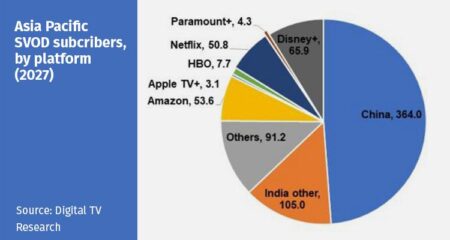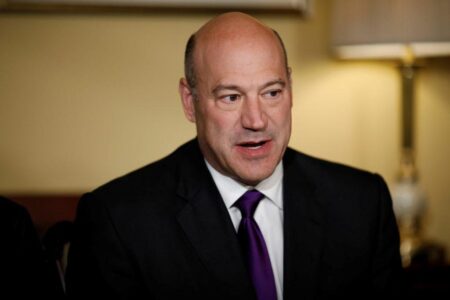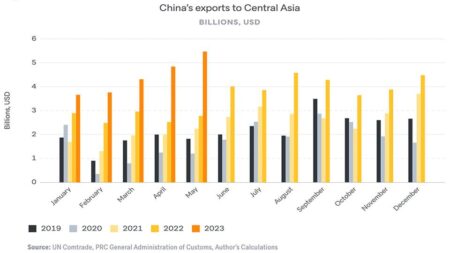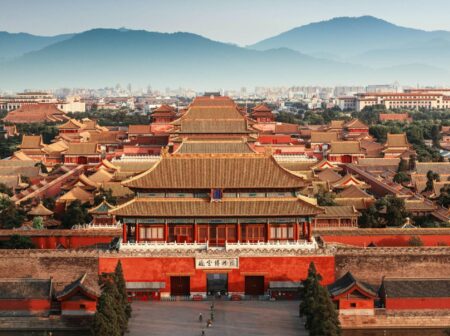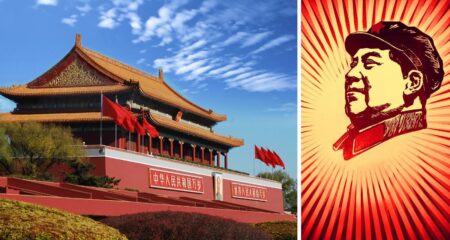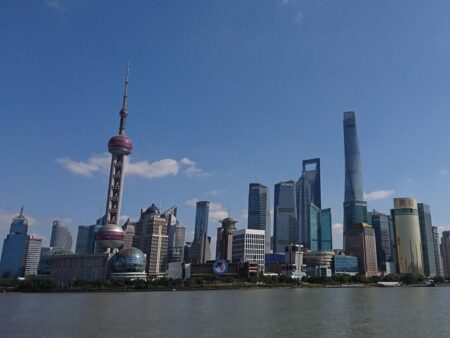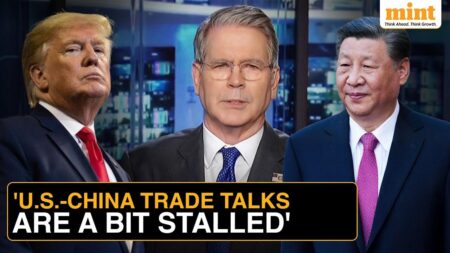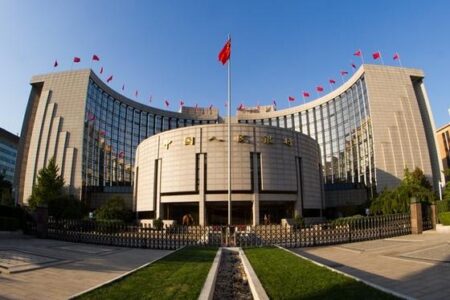As global supply chains strain to keep up, companies are racing to export goods from China, propelled by soaring demand and intricate logistical hurdles. CNN explores the challenges and groundbreaking strategies powering this crucial flow of commerce
Browsing: China
Trump’s latest trade deal with China throws a spotlight on a persistent U.S. challenge: limited leverage in negotiations. Despite new agreements, experts caution that the fundamental structural issues in the trade relationship remain stubbornly unresolved
Former President Trump spotlighted America’s heavy reliance on China for rare earth minerals and announced plans to skyrocket tariffs on Chinese goods to 55%, intensifying the trade battle, according to AP News
China has uncovered a critical vulnerability in global trade networks and plans to leverage this insight to expand its strategic influence, signaling potential major shifts in the future of international commerce, Bloomberg reports
Former President Donald Trump enthusiastically hailed a breakthrough “deal” with China, highlighting major progress on tariffs and promising ongoing talks. Yet, skeptics remain doubtful about the real impact and long-term value of the agreement
Former President Trump unveiled a bold new strategy: securing magnets and rare earth minerals from China while simultaneously slapping tariffs on Chinese goods at a staggering 55%. This move signals a daring and complex shift in the US trade policy and supply chain approach
China’s Vice Premier Li revealed that China and the U.S. have crafted an initial framework to tackle trade issues. He also confirmed plans to brief top leaders on the latest developments, Reuters reports
US-China trade talks reignited on Monday, sparking fresh hopes for easing the ongoing tensions. After the first day, both sides expressed cautious optimism, even as significant disagreements over tariffs and technology transfers continue to cast a shadow
Asia-Pacific markets delivered a mixed bag of results as investors remained on edge, eagerly anticipating key updates from the high-stakes U.S.-China trade negotiations. Traders are intently focused on any clear signals about potential tariffs and groundbreaking agreements that could transform the landscape of global trade
China’s BeiDou satellite navigation system, often compared to the U.S. GPS, is swiftly expanding its influence in military operations. Amid escalating geopolitical tensions, experts debate whether BeiDou is evolving into a powerful strategic weapon or continuing as a primarily civilian tool
A Trump economic adviser expressed strong confidence Monday that a trade deal with China is on the verge of being finalized, highlighting significant progress in the talks despite ongoing tensions. While key details are still being ironed out, an agreement could be reached very soon
China’s exports to the US have plunged dramatically just before critical trade talks, spotlighting rising tensions and uncertainty in this crucial economic relationship. This steep drop exposes growing challenges within the world’s largest trade partnership
China is easing its drive for pharmaceutical self-sufficiency, increasingly relying on American-made medicines as soaring demand and supply chain hurdles transform the industry, according to a Wall Street Journal report
American students studying in China frequently encounter questions about former President Trump, revealing the deep political sensitivities and complex US-China relations that color their everyday lives abroad
China’s ultra-affordable electric vehicles are revolutionizing the domestic market, sending shockwaves through established automakers and regulators alike. Growing concerns over quality, safety, and the potential ripple effects on industry stability are sparking fierce debate
China’s Gen Z is shaking up the liquor world, eagerly embracing sweet, fruity baijiu flavors like plum and berry over the traditional strong spirits. This exciting shift is igniting a surge of innovation and daring new marketing strategies across the entire industry
China controls over 70% of the world’s rare-earth supply, a crucial resource fueling today’s cutting-edge technology and defense industries. In a bold move to challenge this dominance, Australia is rapidly expanding its mining and processing efforts, aiming to build a stronger, more diverse global supply chain
The United States and China are gearing up to meet in London on Monday for pivotal trade talks, aiming to ease ongoing tensions and explore fresh opportunities for collaboration amid persistent economic disputes, Reuters reports
Border officials have intercepted a massive shipment of Chinese chemicals linked to CCP-backed networks, revealing Beijing’s bold and multifaceted tactics to undermine U.S. security and economic interests, Fox News reports
China’s central bank has injected a fresh wave of liquidity to ease worries over a potential cash crunch, underscoring its dedication to maintaining stable credit conditions amid slowing economic growth, reports the Wall Street Journal

